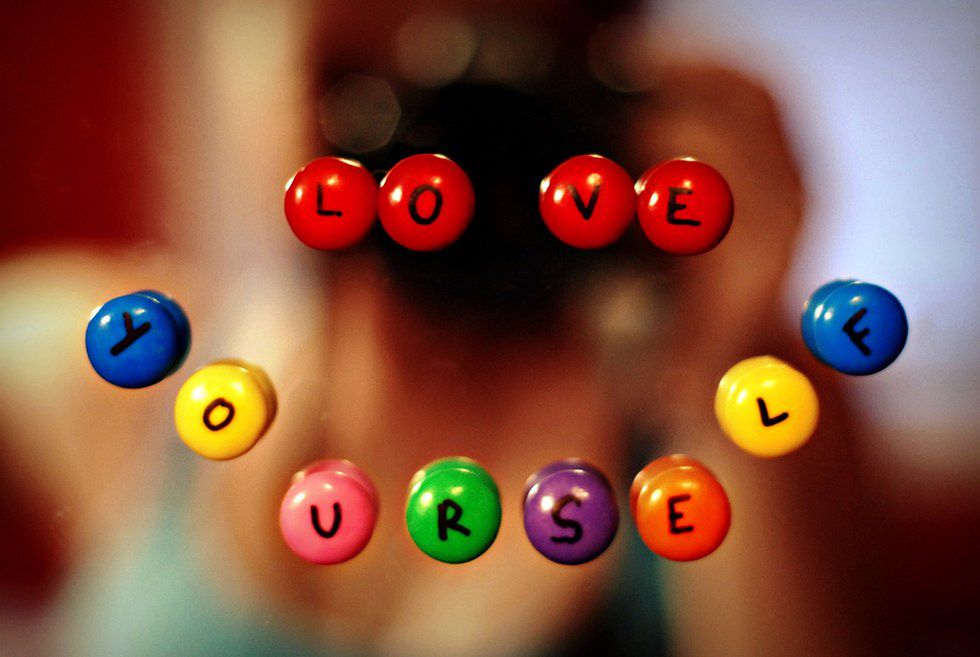Male body shaming happens. We can't add "too" into this discussion because if we do, we are lessening it's value to the movement. We are pushing it off more to the side than it already is.
You might be thinking, "Why is a female talking about male body issues?" Well, I am here to tell you that these issues exist, and I realize how harmful they are to males just as they are to women. We put women's body image and issues on the home front, but rarely do we talk about men. And that needs to change.
In our media, it likes to focus on what women have to do in order to maintain a healthy lifestyle, staying young, keeping a certain weight, looking a particular way and acting all the same. For men, it's always worded in a way that men are naturally supposed to know —maintain muscle, always look buff, be big and keep those stereotypical masculine traits. Since men are supposed to know their expectations, why should we talk about it? One of the reasons why we have beauty and body image problems because we all have this expectation of how we should present ourselves in other people's eyes. There's so much concern and wonder about what other people think of us rather than what we think of ourselves.
Males are always seeing magazine covers with celebrity males who have large muscle arms, a well-developed six pack, a masculine look and a large package in their groin. When they see these images, it creates the list of everything they are not in those pictures. It gets them thinking they are not attractive or beautiful for anyone else, but more importantly themselves. Even the celebrities that were more relatable have grown into a stereotypical masculine look which then discourages those males who don't see men who are like them. To point out, we shouldn't put our worth into someone else's features. We look up to people for a reason because we see ourselves in that person. We see ourselves in someone else hoping we can be like them.
From the National Eating Disorders website, over 10 million males will develop an eating disorder of some type within their lifetime. They also say that teenage boys want to work out in order to gain muscle for them to be more attractive. Fifteen percent of LGBTQ+ men will develop an eating disorder in college, while heterosexual men make up a 5 percent statistic. If you look up male body image, think about what pops up. Do the same for females and spot the difference. We have to think positively of the changes we can make in our lives than the ones we cannot; our bodies are one of those changes we can make, but we have to make it. We can't pay attention to what the media, other people and outside negative opinions throw at us.
Our bodies and minds are always changing. We have to make that choice to grow and accept ourselves for who we are for us along with our bodies. We can't have someone else decide for us whether we are beautiful. Photoshop is a deadly tool that the industry uses too much of and wastes so much money on making something ... perfect. The connotation of "perfect" is deadly. Perfect leaves the impression on someone that they have to strive to achieve something that can never be obtained. Perfect shouldn't be a word we use when discussing bodies, ever.
The fact we don't talk about male body image and expectations is damaging. It makes it an unsafe environment for men to open up about their insecurities, feel vulnerable and realize they don't have to fit into tight boxes. I can't even begin to discuss those who are in the LGBTQ+ community on body image; as someone who is a straight cis-gender female, I have no knowledge of how negative the media can be towards non-binary and trans friends. That is a completely different story, facts and issue I have no proper knowledge to comment about. I encourage you to read upon those issues.
To conclude this article, here is the article that inspired it in the first place. My all time favorite BuzzFeed clan, The Try Guys. They talk about their self-image and perception in an open, vulnerable and inspiring way. Take a look at it and always remember that you have the greatest potential to be the best person you can be. You have one body — treat it well.



































